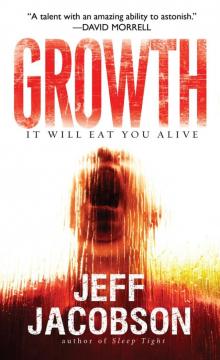- Home
- Jeff Jacobson
The Boy Who Couldn't Fly Straight (The Broom Closet Stories) Page 6
The Boy Who Couldn't Fly Straight (The Broom Closet Stories) Read online
Page 6
“But he grew too hungry for power,” added Beverly. “He wanted the community to expand. He felt that the only way to integrate into society was to have large enough numbers for protection.”
“Don’t forget,” said Randall, speaking for the first time in a long while. “This was an exciting and volatile period in North America. All those race riots had been going on for just over a decade. The women’s movement had gained momentum. The possibility of equal rights wasn’t just a dream anymore. Change was happening on a much larger scale, all over the place, than just with your mother and aunt’s community.”
Charlie tried to remember what he had learned in school about racial integration and equal rights, but it all seemed too fuzzy. That was stuff from textbooks, stuff that seemed far away. How could it all relate to why he was sitting in this unfamiliar house today?
“Dad’s desire for change,” said Beverly, “combined with his ambition, kept him from being able to see the writing on the wall. Whether his ideas were right, and he just didn’t have enough support, or whether he was too radical, was hard to tell. But the division that his leadership created was too much for the community.
“I remember all those people coming over to our house and holding meetings.”
“You mean fighting?” his mother interrupted. “That’s what you told me it was like. Everyone yelling about ‘now!’ or ‘not now!’”
Beverly nodded. “Yeah, there was a lot of that. And then things got really unstable. The Zimmermans picked up and moved to Mexico, the Sawadas went to Canada, lots of families decided that Dad was just too crazy.”
She stopped talking for a moment, lost in her own thoughts of friends and acquaintances who had left town. Then she continued.
“The community stayed together in name only, with much of the trust, and ideas of expansion, lost. Demetrius – Dad- was too proud. He would not step down as leader, and he would not consider that he had been wrong. He held on to the notion that expansion and exposure was what would help them survive over the long haul. Only a small group of his stalwart followers remained in Seattle.
“This was the time your mother was born, Charlie. In 1980. I barely remember when things had been calm, the ‘good days’ as they used to call it,” said Beverly. “Your mother never knew those times at all.”
Charlie looked at his mother, wondering if she would find fault with what her sister said, but she just nodded, then spoke.
“I didn’t understand any of it, really. I was too young. I went to school, I learned about my skills - what I could do. I had friends, some of whom were from our community, but a few, well one girl, really, was not. She was a, well, she was…”
“Like me,” said Randall. “I am just what you think of as a typical human being, with none of the skills or abilities that your mother and aunt have.”
“Oh,” said Charlie, looking at his uncle. He still didn’t know what kind of people his mother and aunt were. Or, he refused to accept what they were hinting at. They would have to come out and say it, instead of continuing to dance around it. But he liked the story, so he didn’t say anything. It helped to hear them talk. Their voices were soothing somehow. It was unfamiliar here, but safe, too, and Charlie didn’t want to disrupt the quiet, and what seemed like a temporary truce between his mother and Beverly, by asking too many questions. As long as they kept talking, he’d keep his mouth closed and listen.
His mother continued. “I knew that my dad was always working. Not at home much. Our mother, Margaret - we haven’t even talked about her yet - anyway, she stayed at home and took care of me. She was, uh,” Elizabeth looked at her fingers as she drummed them on the table, “a quiet woman, lovely really, teaching us lots of stuff, but always giving in to what Dad wanted. She never took a stand.”
“How could she?” Beverly interrupted. “She didn’t know the half of it. She had her hands full with two daughters, a household to run, and a husband who was never around to help.”
“But how could she not have known, Beverly. Please! She would have had to look the other way so long her neck would have broken!”
“Elizabeth, you know as well as I do that she was crazy for Dad. Whatever he said was law. She was too besotted with him to ever see his darker side.”
“Yeah? Well look at the cost of her besottedness, will you?” his mother hissed, this last word wet with sarcasm, “Look at what her willful ignorance cost us. Cost us all!”
“Hey hey, I thought you two called a truce,” said Randall, hands out, looking from woman to woman.
“No, no, she’s right,” Beverly said, visibly swallowing, as if her throat could hold back the words she wanted to say. “Whether or not we agree on why she did what she did, the truth is she…was blind to what was going on, and it did cost us all - a great deal.”
His mother looked at her sister. “You agree then? That the cost was high?”
“How could I not? Of course I do, Liz. Jesus! Dad sneaking off at all hours of the night, plotting with his cronies, our community crumbling around us, nobody knowing what they were doing…”
“We knew what they were doing…”
Beverly cut her off, “…leaving the door wide open for someone, for her to come traipsing in and, and, infiltrate everything. Learning our secrets, gaining our trust.”
Charlie wondered who Beverly was talking about. He watched as she paused, running her hands through her hair. The light caught it, bringing out the darker strands, but Charlie also saw some deep red underneath. Maybe that was the only part of her that was anything like his mother. They didn’t resemble each other at all. Where his mother was red-headed, thin, with freckles and pale skin, Beverly was dark-haired and robust. He remembered a word from his English vocabulary quiz: Formidable.
“You have to believe me, Elizabeth. I did not know what Dad was doing. I had my head too far buried in the sand, trying to be the good older daughter, making sure you were okay, trying to keep the peace. In a weird way, I think Dad thought he could groom me for leadership.”
“Of course Dad was grooming you for leadership, Bev. You were his chosen one, his perfect…”
“Don’t start that shit with me!”
A loud crash came from behind Charlie, causing him to jump. He looked over his shoulder to see a vase from the mantle above the fireplace lying broken on the floor. Charlie watched as Amos hopped to his feet and ran into the kitchen with his tail between his legs.
His mother gasped.
“Beverly,” Randall said, his voice firm. “Take it easy, honey.”
Beverly stood up. “Damn it! I… I’m sorry.”
She looked at Charlie. “I’m really sorry. I, uh, it’s a sensitive topic, and I…”
“I’ll clean up that vase, if you two can stay civil with each other. No more breaking things,” Randall said, trying to make a joke. But his smile faded when he looked over at Charlie.
Charlie was breathing heavily. All of his nerves felt like stereo speakers with the volume turned on high. He didn’t want to be here anymore, where his mother became someone he didn’t know and vases broke when people got angry. He wanted to go out and just get in the Toyota with his mother and drive back home. He knew that wouldn’t be happening tonight, but he didn’t want any of this. None of it. He wanted to be home, in his own bed, homework finished on the kitchen table. He would get up the next day and eat cereal in one of the blue ceramic bowls, have some toast if he had time, then walk down the lane to the main road where Michael and Mrs. McMeniman would pick him up in their minivan, listening to hip hop on the radio while she put on her mascara and asked the boys which girls they thought were the cutest. Usually he found that conversation too embarrassing for words. But tonight, he would have given anything for Mrs. McMeniman to be behind the wheel, he and Michael laughing in the backseat, heading to school, and Spanish and geometry, lunch and history, biology. He would get home and help his mother in the orchards, getting things ready for autumn, then do his homework at the kitchen table…
H
e looked at his mother, who was staring at the wall, and his aunt, who was helping Randall find the pieces of glass that had skidded across the floor. More broken glass.
He had a feeling those simple days of homework and school were long behind him. He could almost see them, bright spots of color in the distance, fading, as the strange, train-like vehicle he was riding plummeted down its tracks, while he held on tightly, having no idea of its final destination.
Chapter 9
For the third time that day, the four of them sat down together, this time at the dining room table. It was almost ten o’clock. Charlie tried to stifle a yawn.
After the vase’s crash and the abrupt ending to their earlier conversation, Beverly and Randall started puttering around in the kitchen, pulling things out for dinner. He and his mother took their things from the truck and brought them upstairs.
The house was bigger than he had imagined. The wide staircase in the entryway led to an upstairs with four large bedrooms, three of which had their own bathrooms. His mother put his things in one of the bedrooms. It had a soft carpet, a large bed, a desk near the window, and a small couch. Light from the streetlamp just outside the front gate filtered in through the gauzy curtains, deepening the warm honey color of the carpet and turning the walls a dark blue.
His mother took one of the other rooms, which seemed to only have a foldout sofa.
“I’ll be fine in here,” she said to him when he tried to give her the room with the bigger bed. “This used to be my room when I was a girl.”
He pulled his things out of his duffel bag. It wasn’t filled with much. His mom had thrown in some shorts and a few T-shirts, as well as an extra pair of sneakers.
In the time before dinner, Charlie sat at the window seat looking out at some of the other houses on the street, through the front hedge. It was hard to picture his mother growing up in a such a nice home in a neighborhood like this. Where had she gone to school? What had her life been like? Why was she always so careful with money if she had grown up here?
Randall called him down to dinner. ”If it was up to me, I’d’ve ordered a pizza,” he’d said, smiling.
“But you know how those two can get.” He winked at Charlie, then nodded at the two sisters, who were carrying platters of food into the dining room. They seemed to be abiding by some unspoken truth to cease arguing while they prepared dinner. In the midst of all of his confusion, Charlie found that he was growing to like his uncle’s kind face and smiling eyes.
“Well, why order pizza when we can make something so much better ourselves?” Beverly asked, as she opened a bottle of white wine and set it on the table.
Charlie had heard his mother say the exact same thing at least a million times, especially whenever he begged her to stop for fast food when they were out running errands. He’d always assumed it was because they didn’t have much money, and that she was extremely frugal. He doubted that Beverly lacked for cash, yet she had the same exact response.
“My thoughts exactly,” his mother replied, as if on cue.
“Okay, new house rules,” Randall began, as the four of them sat down to a platter of cold roast chicken, sides of summer asparagus, corn on the cob, and fresh tomato and watermelon salad with a light, apple-flavored dressing. As different as this environment was, the food looked remarkably like something his mother would have made.
“Randall, there aren’t rules. You don’t get to…” Beverly said.
“New house rules,” Randall repeated, raising his voice. “Rule number one: this is to inform Charlie about…all of this. I had to learn about everything in my twenties. Need I remind you how difficult it was for me?”
The color drained from his wife’s face. She looked at her plate, duly chastised.
“I’m not trying to rub it in, Beverly. But I know what it’s like to be on the receiving end of this stuff more than you do, and more than you do, Lizzy,” he said, raising his chin and looking down at Charlie’s mother the way a gemologist might look at a flawed diamond.
“This isn’t about settling old scores. It’s not about making your point, and it’s not about sibling rivalry or whatever you want to call it.
“Unfortunately, it’s now inevitable,” he went on. “Charlie has to find out. But don’t forget: you are asking him to completely change the way he sees things, how things really operate, at least from your quadrant of the world. It’s not that easy to do. I demand that you two show him, and his brain, more respect in this process.”
There was silence in the dining room as the man’s strong words settled down among them. Charlie was surprised by Randall’s tone of voice, but at the same time felt himself relax a little. Maybe nothing else would break. That would be nice.
“Rule number two: if I feel that things are starting to heat up, I will stop it immediately, and you two will zip it. No more vases crashing to the floor, no more yelling, nothing. We are trying to help Charlie out here.” He paused and looked at each of the sisters in turn. “Just remember rule number one and you’ll do fine.
“Rule number three…”
“Alright, Rand, how many rules…” his mother interrupted, rolling her eyes.
“Rule number three, the final rule: if at any time I decide the conversation is going off track, I will hush the two of you up and take over explaining things.”
“But you don’t know enough…” complained his mother.
“I know plenty! In a way, I know more than you or your people ever will, because I had to accept the reality of who you are and what you can do as a completely clueless person. I had to piece things together that you both had understood your entire lives, since you were wee ones.
“It damn near broke me. As you both know, it nearly cost me my sanity, let alone my marriage,” Randall said, looking at his wife. Beverly stayed very quiet next to him, hands in her lap, accepting his words even if she wasn’t excited about them.
“All this strife that you talk about, all this breakdown of your community, yes, that is awful. I admit it. But to feel that you’re losing your mind…you have no idea. I will not allow that to happen to this young man here, my nephew, this boy who…”
Randall stopped. He looked at Charlie, his eyes shining, mouth quivering as he tried to smile at him.
Charlie held his breath. Was Randall going to start crying? That would be so embarrassing. But…maybe a little nice too. Only just a little. Charlie mostly hoped he would keep it together.
“This boy who was thrust into something that until two days ago he knew nothing about. He deserves as much care and respect as we can muster. And that still might not be enough for him to transition into this new way of looking at things.
“Therefore, if, and only if, you two can agree to these rules: number one, Charlie first; number two, I will stop you if things get too heated; and number three, if need be I will tell the rest of the story myself… If you two can agree to these rules,” he paused, and looked both women in the eye, “and stick to them, for God’s sake, then we will continue. If not, Charlie and I will go for a long walk, and you two can rip each other’s hair out.”
There was another long pause.
“Okay. Agreed,” sighed his mother.
“Me too. Are you finished?” Beverly asked her husband, her voice neutral.
“Quite.”
“You sound more like a lawyer than an airplane pilot, Rand,” said his mother. “Did you change jobs since I left?”
“You have to keep on these people, and they still don’t cut you any slack,” Randall said to Charlie, winking. “Yes, dear, I’m finished.”
“Good. Because I have something to say. First to you, Elizabeth. And that is, I am sorry. I am truly sorry. You deserve a better homecoming than what I have given you today. It’s just that… well… No excuses. I am sorry. It was rude and thoughtless of me to get so angry.”
She nodded her head, as if passing the apology off to her sister. His mother looked back at her, then accepted her apology silently by
nodding her own head in return.
Charlie was not used to so many words, to adults arguing and then forgiving each other so quickly. His head swam with the speed of it all.
“Secondly,” continued Beverly, “I want to say that I am sorry to you, Charlie. I got a little lost there. I truly forget, or as Randall so aptly pointed out, will never know, what it’s like to have to grasp all of this in one fell swoop.”
If Charlie wasn’t used to adults fighting and making up with each other, he certainly wasn’t used to being talked to like an adult, by anyone other than his mother. Most adults in his life talked down to him, the way they talked down to most kids his age. He had long since gotten used to it, but had also developed the habit of tuning a lot of what they said out. Other than the salient points during lectures in class, that is, so he could do well on tests.
To have an adult so clearly address him with respect and a sense of, what? Equality? He wasn’t sure what else to call it. It was new and weird.
“Um, oh sure, that’s okay,” he said, feeling his cheeks burn.
“Thank you, Charlie.” Randall saved him. “You have been more than understanding of us crazy old adults here. Now, can we just dig in and enjoy some food, and then some easy, informative conversation? Huh?”
The food was delicious, fresh, and familiar. His mother asked about their Seattle fruit harvest that year, about their gardens, and filled them in on how the vegetables and orchards were doing back home in Clarkston. His aunt and uncle seemed to enjoy the conversation. The topics were things Charlie understood, and he was able to relax, while the words bounced back and forth across the lush setting of the candle-lit dining room, with the half moon hanging midway in the night sky just beyond the windows.
Chapter 10
With the dishes cleared, and the dessert, a warm peach cobbler, divided onto plates among the four of them, the three adults prepared to dive back in to the conversation.
Duly reminded of the three rules, it was Charlie’s mother who started it back up again.
“For many reasons, mostly because I disagreed with what our father had been doing, I left Seattle when I was sixteen. I guess you could say I ran away from home. I took with me some, um, some protections, so that no one would know where I was going.

 Foodchain
Foodchain Growth
Growth The Boy Who Couldn't Fly Straight (The Broom Closet Stories)
The Boy Who Couldn't Fly Straight (The Broom Closet Stories) The Boy Who Couldn’t Fly Home: A Gay Teen Coming of Age Paranormal Adventure about Witches, Murder, and Gay Teen Love (The Broom Closet Stories Book 2)
The Boy Who Couldn’t Fly Home: A Gay Teen Coming of Age Paranormal Adventure about Witches, Murder, and Gay Teen Love (The Broom Closet Stories Book 2) The Boy Who Couldn't Fly Straight: A Gay Teen Coming of Age Paranormal Adventure about Witches, Murder, and Gay Teen Love (Book 1, The Broom Closet Stories)
The Boy Who Couldn't Fly Straight: A Gay Teen Coming of Age Paranormal Adventure about Witches, Murder, and Gay Teen Love (Book 1, The Broom Closet Stories)